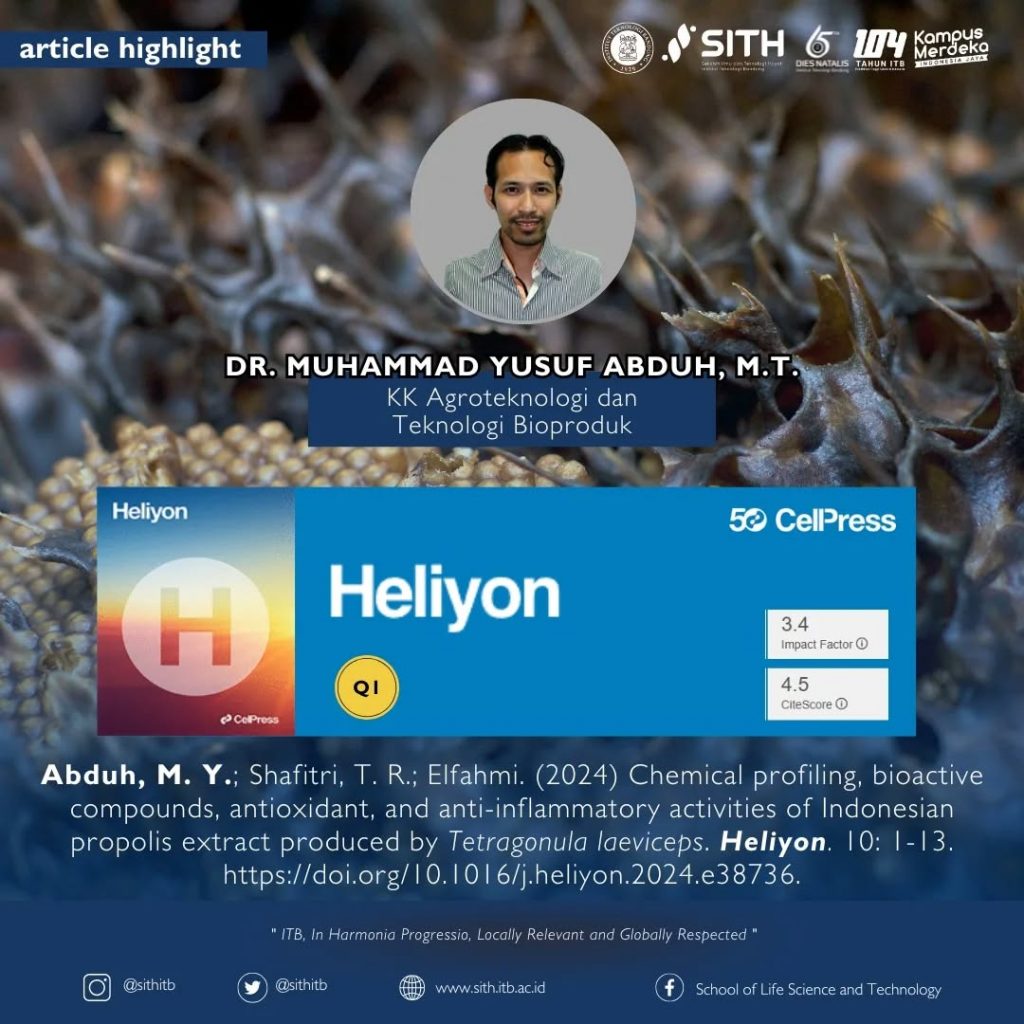Heliyon
Propolis produced by stingless bees contains various chemical compounds that contribute to its bioactivity. This study by Dr. Muhammad Yusuf Abduh, M.T., and his colleagues was aimed to examine the chemical profile, yield, total flavonoid and phenolic content, and in vitro antioxidant and anti-inflammatory effects of propolis extract from 10 distinct locations in Indonesia.The results indicate that there was a significant negative correlation between the total flavonoid and phenolic content of the propolis extract with the antioxidant activity. However, the anti-inflammatory activity was not strongly correlated with the total flavonoid and phenolic content of the propolis extract. There were 36 volatile compounds in the propolis extract as identified by the Gas Chromatography–Mass Spectrometry with triterpenoid as the major substances (28.66–44.86 %). The presence of anti-inflammatory compounds particularly α, β-Amyrin (2.2–6.52 %) and lupeol (2–4.72 %) in the propolis extract highlights the potential of propolis in health and medicine application..

Article Citation:
Abduh, M. Y.; Shafitri, T. R.; Elfahmi. (2024) Chemical profiling, bioactive compounds, antioxidant, and anti-inflammatory activities of Indonesian propolis extract produced by Tetragonula laeviceps. Heliyon. 10: 1-13. https://doi.org/10.1016/j.heliyon.2024.e38736.


